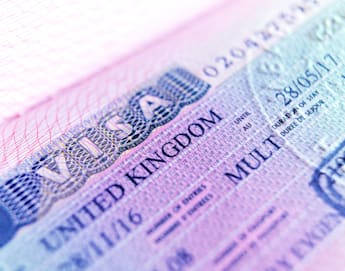Locations
….here Fieldfisher Director of Immigration Joanna Hunt and Legal Professional Aoife Bourdet outline what's new and what potential applicants need to know.
The new High Potential Individual visa is a new route created in response to of the government's Plan for Growth. This had the clear aim of introducing an elite points-based visa route to attract the brightest and best individuals to the UK to maintain the country's status as a leading hub for emerging technologies.
This route launched on 30 May 2022 and will enable foreign nationals without a job offer but with an overseas degree-level academic qualification recently gained from a top university, equivalent to a UK Bachelor's or postgraduate degree to look for work here in the UK. This scheme is designed to encourage individuals with the highest levels of ability to come to the UK and to meet the demand for top level talent in the UK.
This is an unsponsored work route which, gives the holders of this visa the flexibility to work, switch jobs or employers. Individuals using this visa route will be permitted to work in any role, or be self-employed, with no minimum salary requirements.
This a highly selective route which is aimed at individuals who are at the early stages of their careers. Successful applicants will be given a 2-year work visa (3- year for those with a PhD). The visa is not extendable so the applicants will have to move into other long-term employment routes once the visa comes to an end. It will support employers in the UK with highly talented individuals and complement the existing Graduate route which is on offer for international students currently studying in UK universities.
Five Tick Boxes
High Potential Individual visa applicants are expected to:
- Be at least 18 years of age;
- Hold an overseas degree-level academic qualification from an eligible international institution, included in the Global Universities List, awarded no more than 5 years before the date of application;
- Meet the English language requirement (CEFR Level B1 minimum or above in speaking, listening, reading and writing);
- Have the financial funds of at least £1,270 (held for at least 28-days before the date of application) to support themselves while in the UK. If an applicant has been in the UK for 12 months or more, they will not be required to meet the support funds requirement;
- Have not been previously granted permission under the Student Doctorate Extension Scheme, as a Graduate or as a High Potential Individual.
The Universities which are eligible can be found on the Global Universities list which published by the UK government annually. The list contains the top 50 non-UK educational institutions in the world and lists the top 50 universities that appear in at least two of the following ranking systems:
- Times Higher Education World University Rankings
- Quacquarelli Symons World University Rankings
- The Academic Ranking of World Universities
An applicant will need to check to see if their University was on the Global University List in the year their graduated, provided this is within 5 years of the date they are applying for the visa.
A dependent partner over the age of 18 or children under the age of 18 can apply with a High Potential visa holder. Eligible family members will have to apply separately, pay an application fee, have their biometrics taken, and otherwise meet all other requirements to enter or stay in the UK.
It is not possible to extend the High Potential Individual Visa and it does not lead to a direct route to indefinite leave to remain (ILR) within the UK. Holders of this visa who plan to stay longer or settle in the UK will be eligible to apply to switch to a different visa type. This must be submitted before their existing visa expires. Visa holders may consider switching to a skilled worker visa which will allow them to apply for ILR after 5 years.
Finally, there are currently no limits to the number of visas which can be awarded under the High Potential Individuals visa route. However, the limited number of Universities who are on the Global University List may mean that application numbers might be low. The vast majority are from North America, and UK employers may struggle to tempt graduates to the UK when they are likely to receive higher salaries in the US.
High Potential Individual vs Skilled Worker Visa
For those who do qualify, it carries significant advantages over the Skilled Worker visa. It is more cost effective and reduces the administrative burden on employers who can bring an employee onboard and see if they are a good fit before embarking on sponsorship. It is also more inclusive than the Global Talent visa route which is forindividuals who have established themselves as a leader in research, academia, arts and culture or digital technology. The High Potential route is aimed more for those who are entry-level graduates who have not yet reached the status of a leader. Applicants for the Global Talen Visa must be endorsed by an approved endorsing body. However, where a recent overseas graduate is able to show they meet the criteria for the endorsement, they may be able to apply for a Global Talent visa.
We will soon know whether the High Potential Visa is a success when we see the numbers of applicants. With hints from the Home Office that the eligibility requirements may be broadened out this may be a visa that will be further adapted in the years to come.
